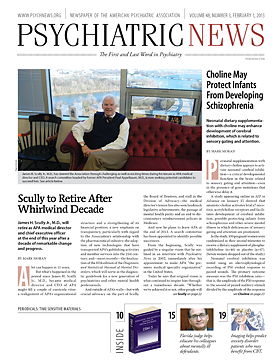Neuroimaging may prove useful for predicting which patients with social anxiety disorder (SAD) are likely to gain the most benefit from cognitive-behavioral therapy (CBT), suggests a study reported in the January JAMA Psychiatry (formerly Archives of General Psychiatry).
The study was headed by Oliver Doehrmann, Ph.D., of the McGovern Institute for Brain Research at the Massachusetts Institute of Technology.
Doehrmann and his colleagues used fMRI imaging on 39 subjects with SAD to determine how their brains reacted when they were shown photos of angry or neutral faces. As the researchers explained, “Angry faces, relative to neutral faces, convey disapproval and are likely to evoke excessive fear responses and negative cognitions in patients with SAD. Also, the means to down-regulate these responses are learned during CBT.”
After the study subjects had viewed the pictures, the researchers had them undergo 12 weekly group-based CBT treatment sessions. Finally the researchers evaluated whether the means in which the subjects’ brains reacted to angry or neutral faces predicted whether the subjects would respond to CBT.
The researchers found that the responses shown during the brain imaging did help them determine which subjects would benefit most from CBT.
The subjects with greater brain activation in response to angry rather than neutral faces gained greater benefits from CBT, while subjects showing the reverse—greater activation for neutral than for angry faces—gained fewer benefits from CBT.
The researchers also found that combining the brain-imaging measures with information on clinical severity accounted for more than 40 percent of the variance in treatment response and substantially exceeded predictions based on clinical severity alone, which accounted for about 12 percent of the variance in treatment response.
“The results suggest that brain imaging can provide biomarkers that substantially improve predictions for the success of cognitive-behavioral interventions and more generally suggest that such biomarkers may offer evidence-based, personalized medicine approaches for optimally selecting among treatment options for a patient,” Doehrmann and his team concluded.
Some of their results surprised them, though, they acknowledged. For example, when subjects reacted to angry faces, the areas of their brains that reacted were regions of the higher-order visual cortex—not the amygdala, which is the fear-processing center of the brain.
The study was funded by the National Institute of Mental Health, the German Research Society, and the Poitras Center for Affective Disorders Research. ■

